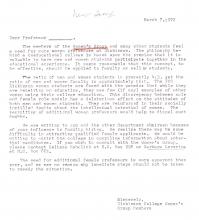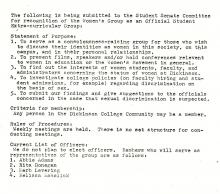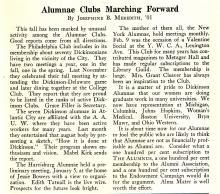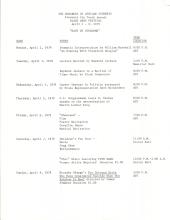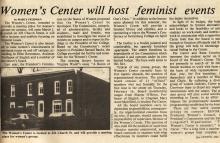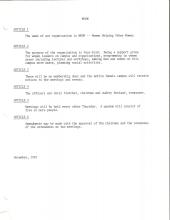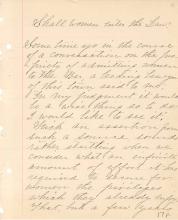Women's Group Calls for More Female Professors
The members of the Women's Group composed a letter to professors calling for more female faculty at Dickinson College. The Women's Group writes that the foundation of coeducation presupposes that it is valuable to have both men and women students participate in the educational experience. They explain that this concept should be applied to faculty as well and cite the ratio of male to female faculty of 10:1. The male to female student ratio, by contrast, was 4:3.

